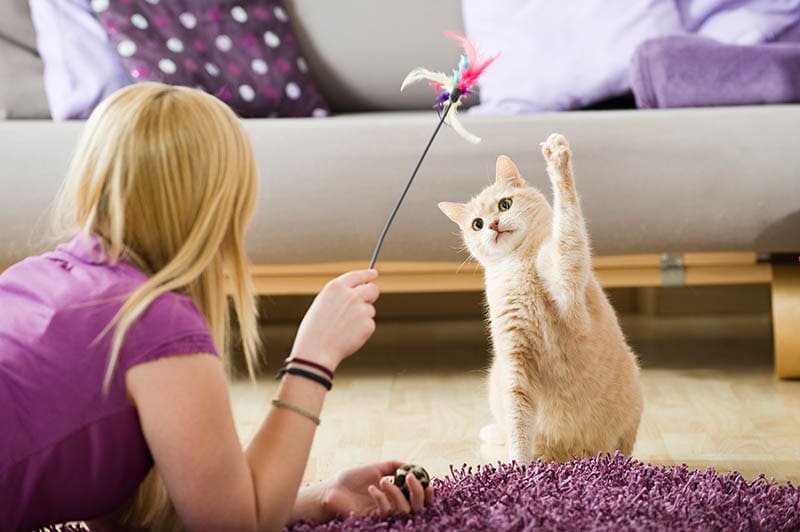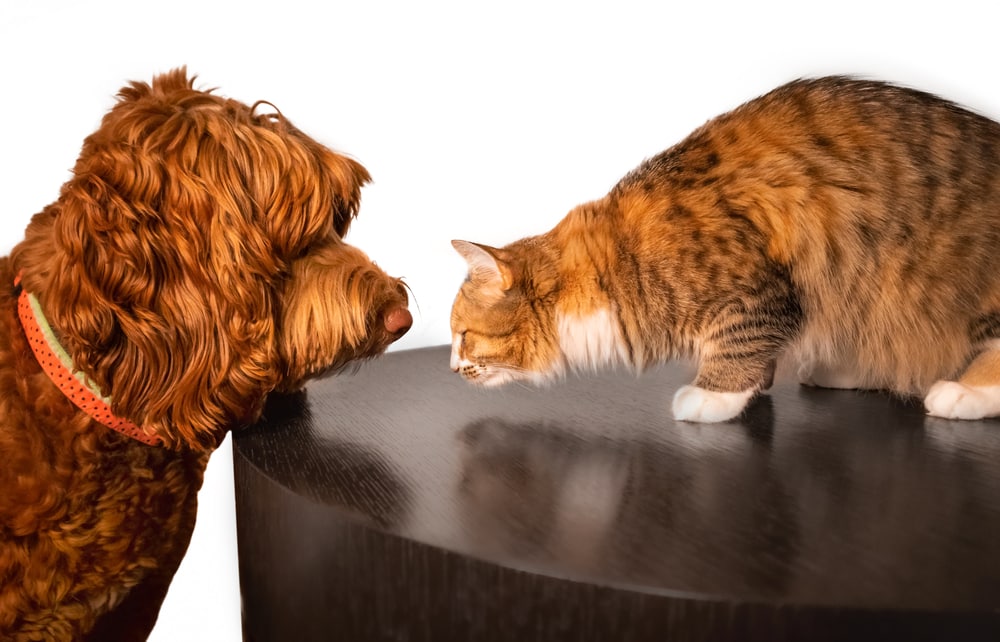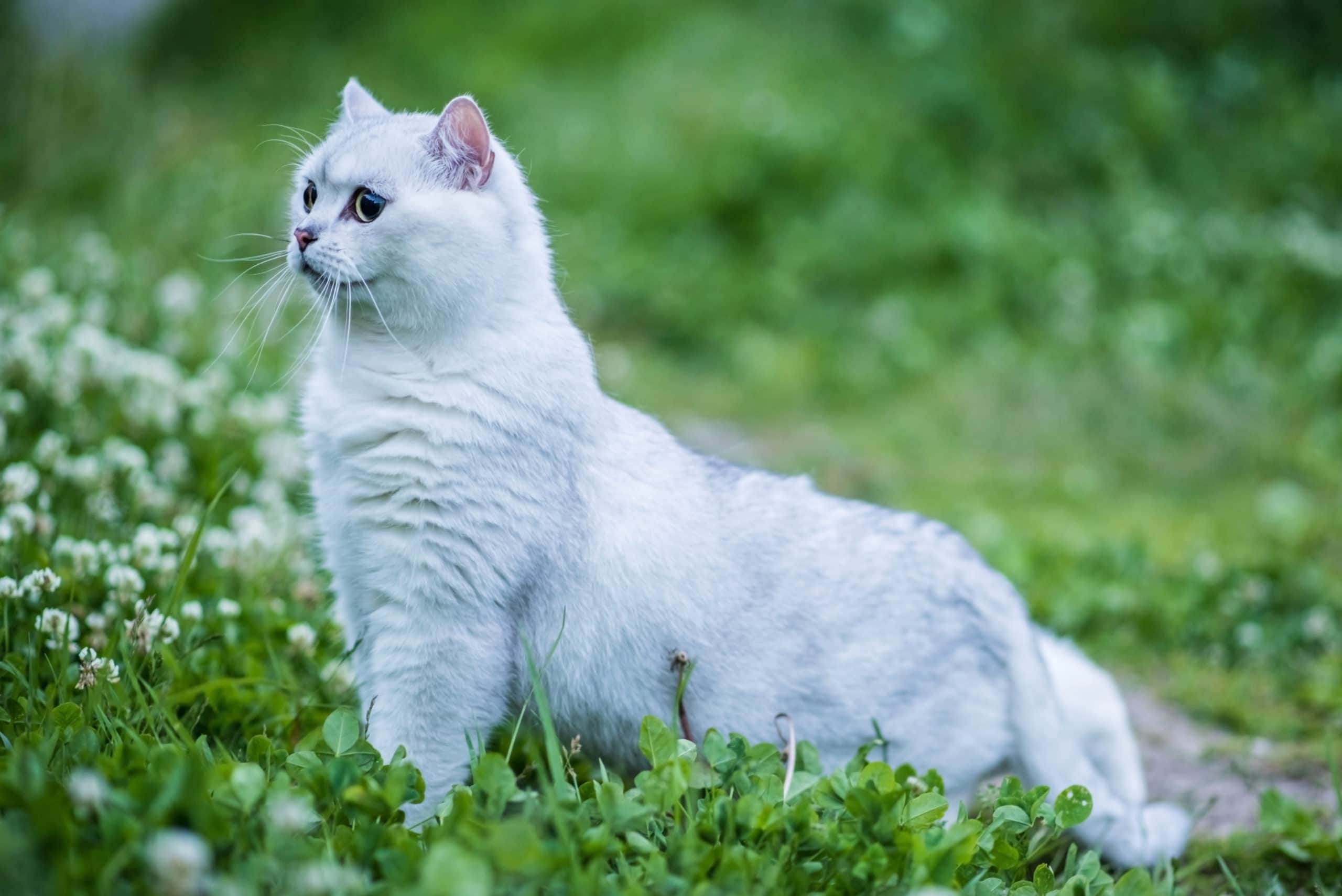Can Cats Eat Basil? Vet-Reviewed Nutrition Facts & FAQ

Updated on

Basil is an edible herb. It is part of the mint family, which is the same family of herbs that catnip comes from, and that also includes rosemary, sage, and oregano. Not only is basil safe for cats to eat, but its antioxidants could also be beneficial to your feline friend. It should certainly be safe if your cat chews the basil plant in your garden or in your kitchen herb pot.
 Is Basil Toxic to Cats?
Is Basil Toxic to Cats?
Basil is not toxic to cats. It can be eaten relatively safely and because it does not contain a lot of fat, it shouldn’t cause an upset stomach or any gastrointestinal problems. Similarly, although it does contain fiber, your cat would have to eat a lot of basil for it to cause any problems. However, just because basil is not toxic does not mean that it’s beneficial to your cat, even if it is considered a healthy addition to a human diet.
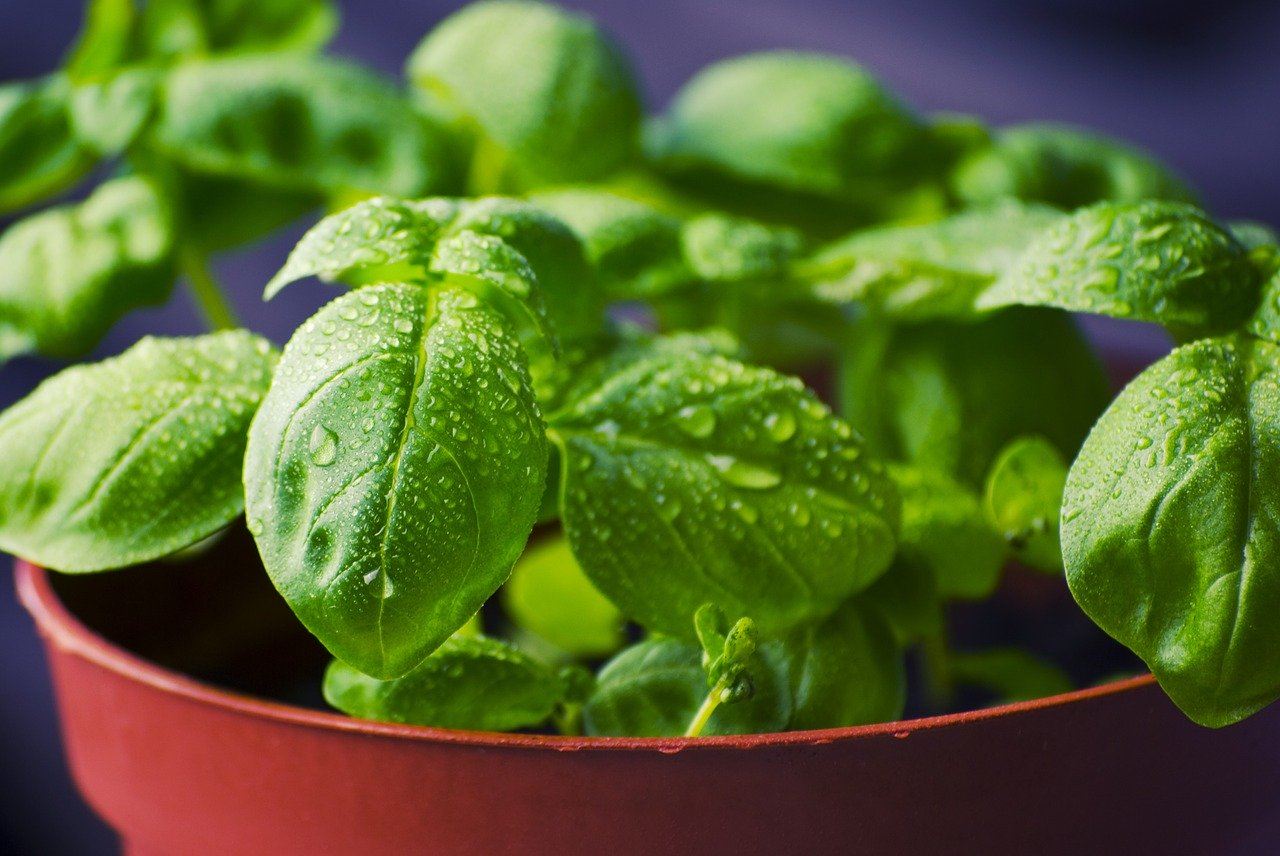
Does It Offer Any Benefits?
Cats are carnivores, which means that even though they can eat plant-based foods and often do when eating commercial dry and wet foods, their bodies are not made to process large amounts of these kinds of foods. Basil is high in vitamin K, folate (natural folic acid), lutein, and zeaxanthin. So yes, basil can provide some micronutrients to benefit your cat’s health.
Is Basil Like Catnip To Cats?
Basil is in the same family of plants as catnip, but it does not contain nepetalactone, which is the chemical compound in catnip that acts as a cat stimulant. Other plants with cat stimulants include valerian root and silvervine. So, while it’s in the same family of plants as catnip, basil does not appeal to cats in the same way.

4 Species-Appropriate Antioxidant Alternatives to Basil
Two interesting components of basil that could benefit your cat are the antioxidants lutein and zeaxanthin. These are known to protect the cellular structures of the eye. However, other food sources offer different antioxidants. If your cat is repelled rather than attracted to basil and you are looking for a good source of antioxidants, consider the following healthy treat ideas for your feline friend.
1. Krill
Krill are tiny crustaceans and belong to the same family as shrimp. They have a high concentration of astaxanthin, which is a more potent antioxidant than lutein. Krill is also considered a good alternative to fish because it is lower in the ocean’s food chain, so it does not have the same concentrations of heavy metals. Krill oil is probably the easiest way to provide this benefit to your cat.
2. Fish
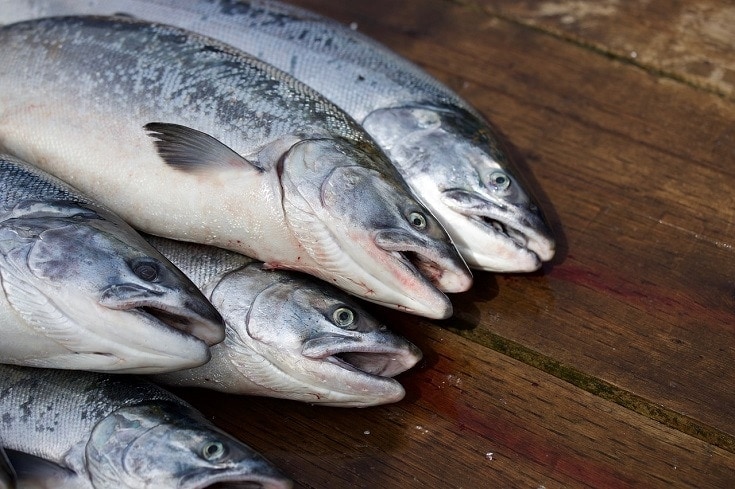
Although you should not feed too much raw fish to a cat because it is known to deplete their thiamine resources, cooked fish is good for cats. Salmon is especially beneficial because it contains healthy proteins, omega-3 fatty acids and the antioxidant astaxanthin.
3. Egg
In general, eggs are an excellent source of antioxidants. The yolk contains carotenoids, and the whole egg contains peptides and selenium. You shouldn’t fry food for cats, so if you want to give this food to your cat, know that poached eggs are the best; just ensure that they are in-shell pasteurized. Boiled eggs are convenient because they can be broken into smaller pieces that can easily be served.
4. Seaweed

Seaweed is a superfood for humans due to its high concentration of antioxidants and high levels of other nutrients. It can offer a few of the same benefits to cats too, and they can easily digest it. However, keep in mind that seaweed is high in iodine content, so before adding this supplement to your cat’s diet, please talk to your vet.
 Which Herbs Are Safe for Cats?
Which Herbs Are Safe for Cats?
If you’re concerned about your cat eating the contents of your herb garden and getting ill, several herbs are non-toxic and safe for cats.
- Echinacea is sometimes given to cats because it supports the immune system and may be given to help with upper respiratory infections.
- Another supplement given to cats with upper respiratory infections is licorice root. This root soothes mucus membranes and can also help in the fight against allergies.
- Some other culinary herbs that you can safely grow include coriander, dill, rosemary, and thyme.
- Another herb of note is valerian. It’s perfectly safe for cats and is considered a cat stimulant in the same vein as catnip, though usually not as potent. This means that while you can safely grow the plant, it is possible that your cat will dig it up as soon as you plant it.
Can Cats Eat Tomato?
Tomatoes, and especially tomato plants, contain a substance known as solanine which is highly toxic to cats and dogs. The ripened fruit, or the tomato itself, does not contain solanine and is considered safe, but it is best not to take any risks.
Can Cats Eat Blueberries?
If you’ve ever studied the backs of cat food products, you will likely have seen that some contain blueberries. This can seem like an odd addition to cat food: they are obligate carnivores after all. But, while blueberries do not offer the same wide range of health benefits to cats as they do to humans, they are still a good source of antioxidants and are non-toxic so are safe to be fed to your cat.
Are Cucumbers Toxic to Cats?
Cucumbers are not toxic to cats, though if YouTube videos are anything to go by, cats are somewhat terrified of this item. But this is more due to the novelty and unknownness of an alien object suddenly presenting in their territory and proximity than because they are afraid of the food itself.
Can Cats Eat Garlic?
Garlic is a member of the allium family, which also includes chives, leeks, onions, and shallots. All of these are considered toxic to cats and dogs when eaten. It can damage red blood cells and cause anemia. It doesn’t take too much garlic, which is more toxic than onion, to potentially cause serious damage to your cat and it should be avoided completely.
 Can Cats Eat Basil?
Can Cats Eat Basil?
Basil is an herb that is popular in cooking and actually belongs to the same family as catnip, though it does not contain the same chemicals that make catnip a cat stimulant. The herb is completely safe for feline consumption, with only rare instances of diarrhea and vomiting. In fact, it may prove a good source of antioxidants that are known to help protect eye structures.
Other beneficial sources of antioxidants that can be given to cats include krill, fish, and organic poultry. These are especially beneficial because cats are obligate carnivores, which means that their digestive system and their bodies are better equipped to process meat and meat-based foods than they are to deal with fruit, vegetables, and plants.
- Related read: Can Cats Eat Cilantro? What You Need to Know
Featured Image Credit to: kkolosov, Pixabay

 Is Basil Toxic to Cats?
Is Basil Toxic to Cats?
